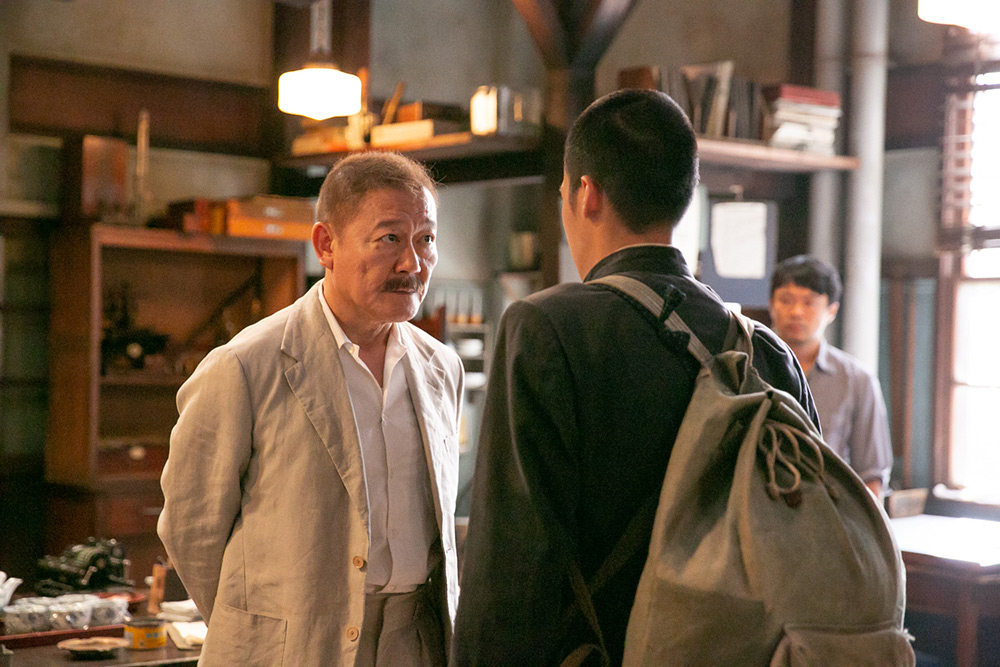![“Children of the Sun” director Hiroshi Kurosaki pursues “the dynamic of life” in a fictional world [Director’s Interview Vol.130]](https://cinemore.jp/images/af1641e06158749c56143a9e039dc25eb22de1d06ad0632575949c84f1c14c46.jpg)
“Children of the Sun” director Hiroshi Kurosaki pursues “the dynamic of life” in a fictional world [Director’s Interview Vol.130]
Heroes are also human. I want you to make a lot of mistakes and fail.
Q: Many of Kurosaki's previous works have ties to history and society, right? I am very curious about how you perceive Japan today.
Kurosaki: That's right... (thinking). As for ``Child of the Sun,'' I didn't originally want to depict that era, but I happened to come across the subject matter 70 years ago. I felt that while using that as an entry point, I felt connected to the present day. In other words, themes such as humans, science, scholarship, and war still continue, and will probably continue to do so in the future.
As with Osamu (Yagira Yuya), no one knows where they will end up as they research the cutting-edge science of the time. When I think about it that way, I get a strong feeling that this is not an old story at all, but something that is connected to today's Japan and the world.
I don't know anything about the science they were researching, but I'm sure they were working on it with some kind of hope in mind. It was interesting because no one had ever seen it before, and I couldn't stop my desire to see it. That's why I was able to fuel my youthful passion.When I saw these young people stand up in front of me, I realized that they were real-life young people who were no strangers to me, and that's when I wanted to write about them.
When it comes to "science and humans," the coronavirus pandemic is exactly that. We are now being shown vividly that humans cannot fully control natural science, and even so, we have no choice but to deal with it at the very limit. However, at the end of the day, you can't live without hope, and I think humans are creatures that always search for hope. That's probably why I feel like I want to see "life".

“Child of the Sun” ©2021 ELEVEN ARTS STUDIOS / “Child of the Sun” Film Partners
Q: What I thought was wonderful when I watched “Children of the Sun” was the way the characters’ “thoughts” changed. Osamu is exactly like that, when he is about to be infected by intellectual curiosity and the madness of the idea of being a scientist, he comes into conflict with the people around him and becomes abrasive. Was this something you put in consciously?
Kurosaki: If you decide from the beginning that ``this character will play this kind of role'' and then write the story, it will end up being extremely stereotypical. I didn't want to do that. The social situation changes from time to time, and human beings tend to change their ways of thinking.
Instead of saying, ``I'm a hero, I can't make mistakes,'' I always want them to make a lot of mistakes and fail. If you look at it with your current perspective, you'll say some things are right and some things are wrong. I think the same goes for Professor Arakatsu, played by Jun Kunimura. From your current perspective, you might think, ``That can't be true,'' but at that moment he was seriously talking about the future and said something like a utopian idea, ``If you're a scientist, you have to believe in the future.'' .
The truth is that Japan at the time wouldn't be able to create an atomic bomb, but there's probably a part of them that is willing to lie if it means protecting the students, and I think each character has a multifaceted side. Masu. Living in difficult situations, thinking about each moment to the fullest. I wanted to be able to convey that sense of tension.
The decision not to set a goal brought out the actors' true play.

